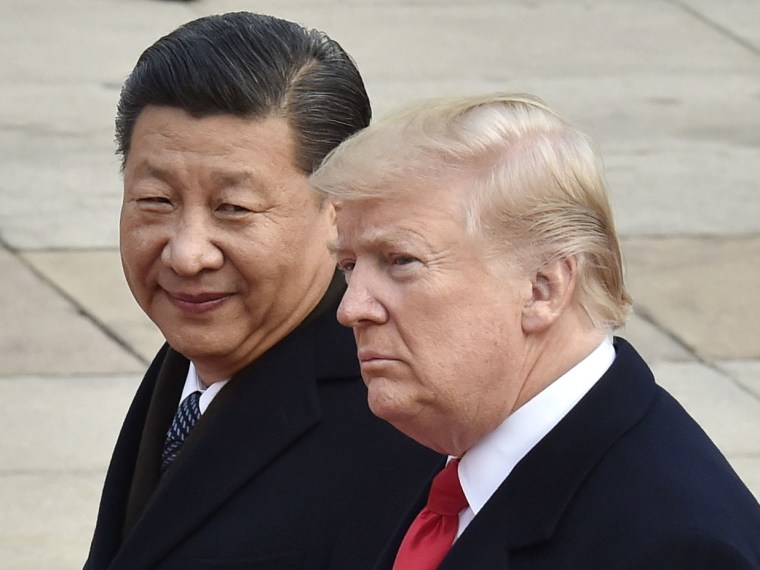Donald Trump recently boasted, in reference to trade policy, "I understand that issue better than anybody." He later added, "I know every ingredient. I know every stat. I know it better than anybody knows it."
I realize that the president has a bizarre habit of assuming that he's an expert in every subject, but his insistence that he's a world-class authority on trade policy is hopelessly bonkers.
Trump started the week with new trade threats directed at China, predicated on the false idea Beijing has been pouring money into the U.S. treasury thanks to his tariff policy. The Republican added soon after that tariffs are contributing to stronger domestic economic growth, which isn't even close to being true.
At his campaign rally in Florida, Trump continued to get the details of his own trade agenda wrong, and at a White House event yesterday, he argued with great confidence that Americans aren't paying more as a result of his tariffs, which is the exact opposite of the truth.
A Washington Post analysis yesterday described the president's trade agenda as "an intellectual disaster."
What the author of that piece failed to anticipate was that Trump wasn't quite done. Indeed, the Republican made matters quite a bit worse this morning.
He began by misstating (not the first time) the size of the U.S. trade imbalance with China and confusing the difference between a trade deficit and a loss.
Trump soon after added, "Talks with China continue in a very congenial manner — there is absolutely no need to rush -- as Tariffs are NOW being paid to the United States by China of 25% on 250 Billion Dollars worth of goods & products. These massive payments go directly to the Treasury of the U.S." Again, this is spectacularly wrong.
But it was at this point that the president apparently made a little news. "With the over 100 Billion Dollars in Tariffs that we take in, we will buy agricultural products from our Great Farmers, in larger amounts than China ever did, and ship it to poor & starving countries in the form of humanitarian assistance," he tweeted, adding, "Our Farmers will do better, faster, and starving nations can now be helped.... If we bought 15 Billion Dollars of Agriculture from our Farmers, far more than China buys now, we would have more than 85 Billion Dollars left over for new Infrastructure, Healthcare, or anything else."
I'll just let Philip Bump take it from here:
A 25 percent tariff on $575 billion would yield about $144 billion, for what it's worth. But again: This is not money being paid by China. Some of the tariff fees will be paid by the Chinese manufacturers in an effort to keep costs down, sure. Some will be paid by businesses. But much will be paid by consumers. It's that $767 tax -- a $62.5 billion tax increase nationally.Trump's worried about farmers because much of what the United States exports to China is agricultural. China's retaliatory tariff on soybeans dramatically reduced exports to that country, the world's largest consumer of the crop. Farmers, of course, often live in rural red states that are key to Trump's base of political support. The government has already moved to bolster farmers with financial support to offset the damage done by the trade war.What Trump's claiming here, though, is that he'll take money paid by China in the form of tariffs to buy the farmers' goods and ship them to other countries -- leaving lots of money left over for other funding needs. But we can translate his argument in a less flattering way: Trump is taxing American consumers and using some of that money to buy agricultural products to protect part of his political base from his trade war.
Whether Trump understands any of this is unclear, but it's the kind of wealth redistribution scheme that, if recommended by a Democratic president, would've prompted widespread Republican apoplexy.
